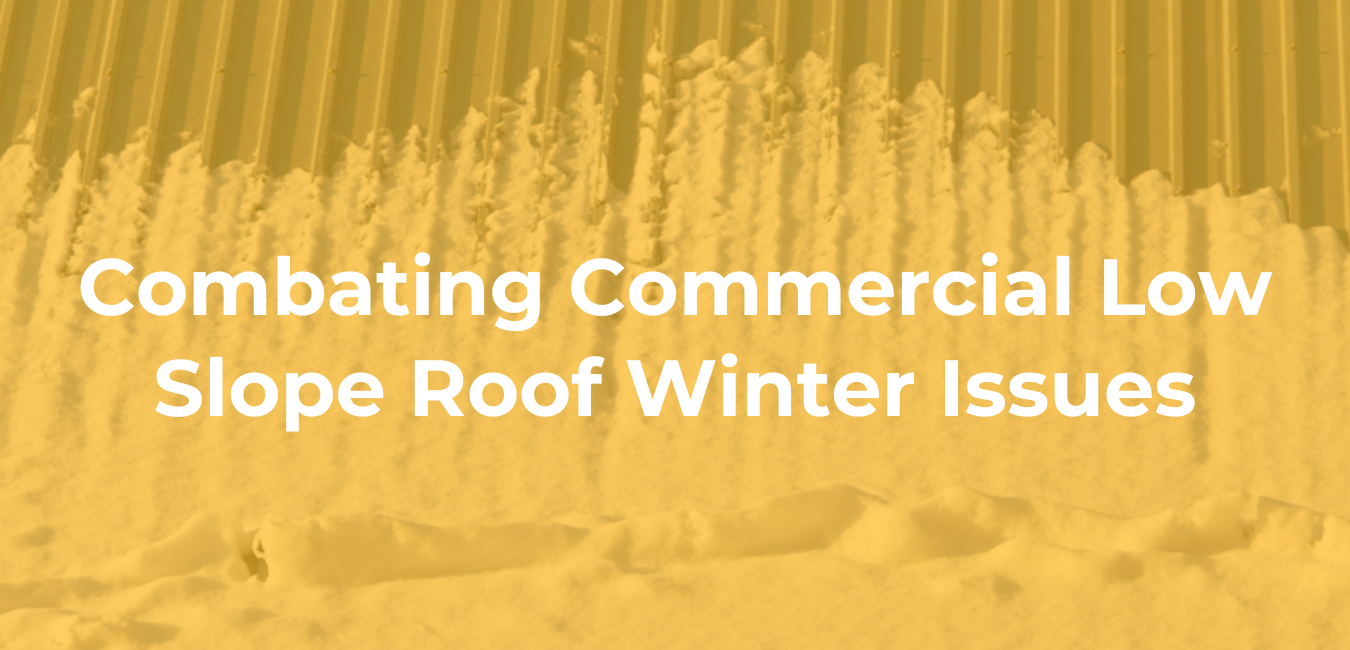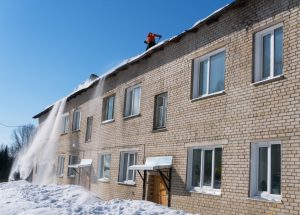Low Slope
Snow Pileup and Ice Damming
As snow piles up and ice dams form, this can result in clogged drainage systems and roof collapses. It’s a good idea to have an ice and snow removal plan before bad weather commences. Mother Nature can easily foster conditions for snow and ice to accumulate without allowing time for cycles of de-thawing and draining.
Wind Damage
Wind uplift occurs when strong air gets underneath roof materials and pulls them up. As a result, the roof appears to have wrinkles or bubbles underneath the surface. Rain can become trapped underneath and begin to rot the materials. In addition, if you have open seams where wind can catch, it can pull the entire membrane off. Proper flashing and secured fascia can prevent wind damage from wreaking havoc on your roof. Rooftop accessories should also be checked to ensure that screws, nuts, bolts, etc. are intact.
Condensation
As hot air from your building’s interior rises and meets cold air, condensation can form if the air becomes trapped beneath the membrane, creating moisture. Moisture leads to condensation, which can rot the roof decking and reduce insulation effectiveness.
The best way to ensure your commercial roof can withstand winter weather is to get an inspection to identify any issues. Call Aspen Contracting today to schedule your free inspection and estimate.



0 Comments